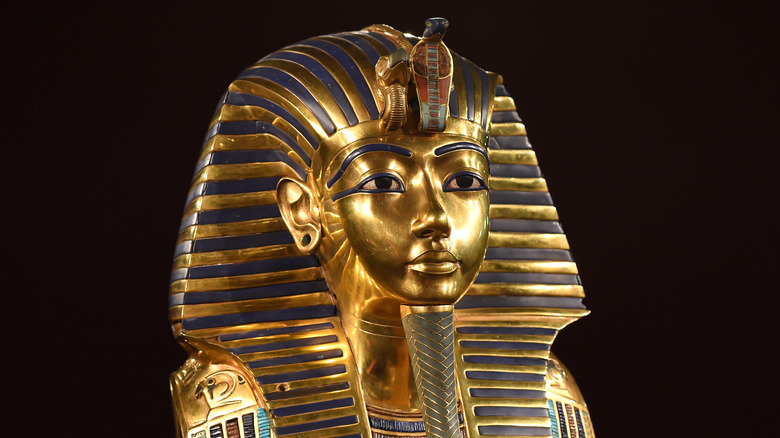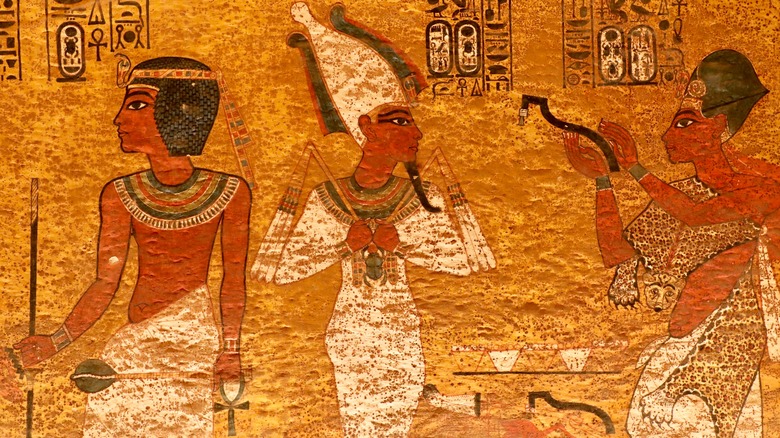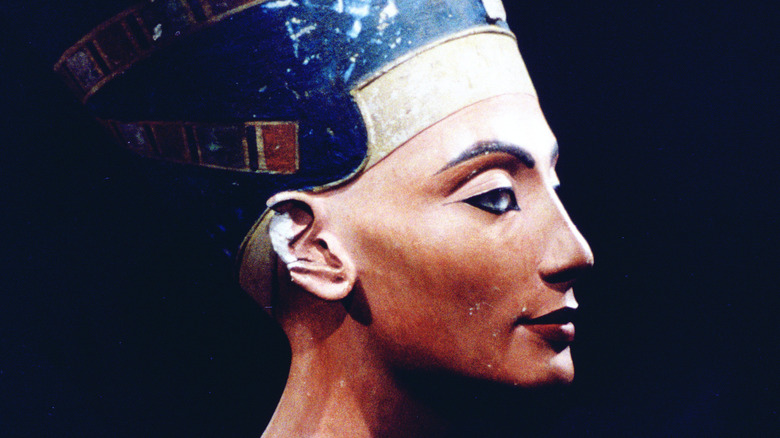The Theory That Changes How We See King Tut's Parents
In 2010, a study on Tutankhamun's DNA was led by Zahi Hawass, Egypt's leader of the Supreme Council of Antiquities. The results showed that King Tut's mother was likely a sister of his father, Akhenaten. During the research, the team studied the DNA of 11 mummies to try to uncover any genetic disorders the boy king may have inherited, which it's speculated to have contributed to his early death. The results yielded some surprising details about his heritage, including the theory that malaria and a bone disorder led to Tut's death, as well as the possible identity of his mother (via Live Science).
New research, however, challenges the 2010 study. Although it is established that Tut was the son of king Akhenaten, the identity of his mother has been called into question. Marc Gabolde is a French Egyptologist who is leading the study on Tut's parentage, and he said in a speech at Harvard University that he does not believe the DNA similarities between his parents means they must have been siblings (per another article at Live Science).
Tutankhamun's background and reign
Tutankhamun reigned in Egypt between 1333-1323 B.C. His short time in power was punctuated by an abrupt end to his life at the age of 19. The young man would make it into the archaeological spotlight millennia later due to his well-preserved tomb, which was uncovered by Howard Carter in the Valley of the Kings in 1922. Analysis of his remains showed that he bore a close resemblance to the king who ruled before him, Smenkhkare, who also shared power with Akhenaten at the end of the latter's reign (via Britannica).
Upon Smenkhkare's death, Tut took power and married Ankhesenamen, Akhenaten's third daughter, with whom he shared his throne. After moving to Memphis, near Cairo, Tut had the old polytheism restored to Egypt in place of his father's sun god, Aton. This represented a shift from Egypt's first monotheism back to the older religious traditions, a change Tut wanted reflected in the art of Egypt's temples. His advisors bore much responsibility for the political career of Tut, given his young age, likely coupled with the fact that he had health problems leading up to his death (per Britannica).
A Contentious New Theory
Although much has been reconstructed about the young regent's life, there are sundry mysteries awaiting resolution. The facts of his death along with his parentage have been enigmas for many decades and contribute to the king's fame, along with the state of his pristine burial. Consensus names Akhenaten, but the identity of his mother, even if she were one of the king's sister's, is unknown. UCLA professor and Egyptologist Kara Cooney believes Tut's mother could have been one of Akhenaten's daughters (per Discover Magazine), while Marc Gabolde posited the contentious theory that Nefertiti, Akhenaten's cousin and co-ruler, was Tut's mother (via Live Science).
Gabolde claimed that three generations of first-cousin marriage could account for the genetic results of Zahi Hawass' 2010 study. This, in concert with the fact that Nefertiti birthed six of Akhenaten's daughters, lends some weight to the theory. However, Hawass claimed that his original study proved that Tut's mother was the daughter of Amenhotep III and no such relation has been established between the latter and Nefertiti (per Live Science).


